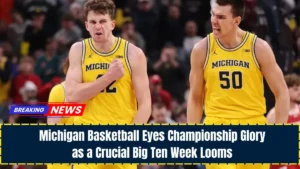As students return to Kansas classrooms this fall, school districts are grappling with how to implement a new requirement: classes teaching human growth, development, or sexuality must now show a three-minute video of fetal development, whether a high-definition ultrasound or a computer-generated animation.
Passed in 2025 and effective July 1, this law has ignited a heated debate over its intent, vagueness, and implications.
What the Law Mandates
The newly enacted law, just 62 words long, obliges any course covering human development to include a video that shows the development of the brain, heart, and other vital organs.
However, it leaves critical details—such as which grade levels, video selection, or presentation timing—entirely to local school districts.
Lawmakers vs. Critics
Proponents, including anti-abortion advocacy groups, tout the mandate as a necessary enhancement to the scientific curriculum. Critics argue it lacks standards for content accuracy, and claim it’s a politically motivated move aiming to deliver anti-abortion messaging in schools.
These divisions are particularly notable in Kansas, where reproductive rights remain disputed despite constitutional protections affirmed by voters in 2022.
Implementation Challenges Across Districts
With the Kansas State Board of Education lacking directive power, 286 districts must each interpret and operationalize the law differently. Some districts, like Wichita Public Schools, preemptively formed committees and created their own vetted video content.
Others, including Shawnee Mission and many suburban districts, are still drafting policies weeks into the school year.
KSDE’s Advisory Role—But Not Oversight
While the Kansas State Department of Education (KSDE) hasn’t issued mandates on how to comply, Deputy Commissioner Renee Nugent has advised districts to:
- Source videos from reputable medical or scientific publishers.
- Use existing notification policies to inform families and offer opt-out options.
KSDE emphasizes it will not dictate video choices, grade applicability, or which classes must comply.
Context: A Broader Political Push
The requirement forms part of a larger legislative package that includes:
- Tax exemptions for fetal and stillborn children.
- Expanded child support provisions retroactive to conception.
- $3 million in funding for anti-abortion pregnancy resource centers.
This suite of laws reflects ongoing efforts in Kansas to introduce fetal-focused policies—a push seen by some as part of a broader political strategy.
Implementation Status at a Glance
| District/Entity | Status |
|---|---|
| Wichita Public Schools (WPS) | Created own video via committee with medical review; will notify parents and offer opt-out. |
| Shawnee Mission USD | Policy expected by end of month; planning underway. |
| Olathe, Blue Valley, Topeka | Unclear—no public statement or updates. |
| Kansas State Board of Education | Not issuing guidance; stressed local control. |
Kansas’s new law mandating fetal development videos in schools has initiated a patchwork of local responses, with major questions about scientific integrity, age-appropriateness, and political intent. While some districts have adapted smoothly, others remain uncertain.
As this unfolds, the law leaves educators, parents, and policymakers debating its implications for classroom science and civic discourse.




